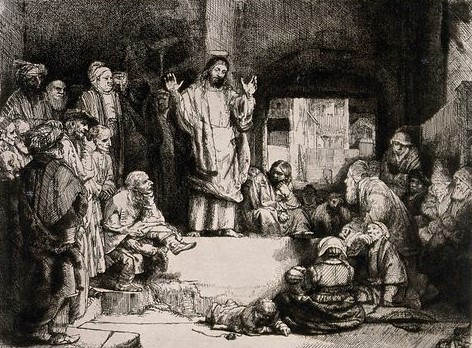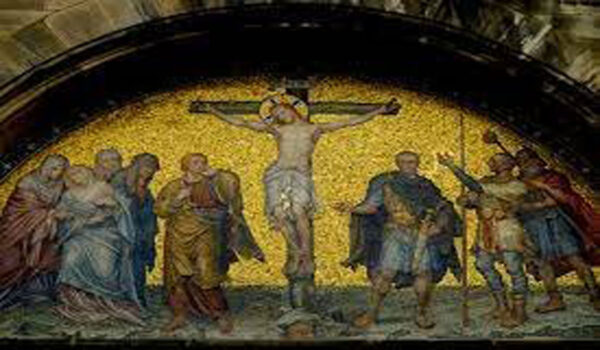Crusade’s Crucifixion And Rise Of Christianity (30 A.D.)
Romans were not able to find any spiritual fulfillment in the early Roman religion. When the pagan gods’ worship grew monotonous, the Romans briefly “sought consolation in Persian, Egyptian, and other Eastern religious cults and ideologies.” Finally, they found immense spiritual fulfillment and admirable ideals in Christianity.
Christianity placed a strong emphasis on the human family and the fatherhood of God. Additionally, it imparted knowledge of human virtues including love, sympathy, kindness, honesty, chastity, and honour.
Jesus Lifetime
Jesus’ life is only briefly and hazily described in the first books of the New Testament and the book of Acts. In 4 B.C., during the reign of Herod the Great in Judea, he was born a Jew in Bethlehem, a tiny town close to Jerusalem. He was born to the virgin Mary and Joseph of Nazareth, a lineal descendant of King David.
When Jesus was born, the Jews were subject to Herod’s corrupt reign and Roman power. They eagerly anticipated the promised Messiah, who would free them from Roman rule. Jesus spent over 25 years in the sleepy village of Nazareth.
He was a gifted young man who could comprehend and analyze Jewish scriptures. At that time, many interpretations of Judaism and the Mosaic rules existed. There were many controversies throughout Judaism.
Significant Impact on his Life
John the Baptist, Jesus’ cousin, ended up having a significant impact on his life. A Messiah would come to save his people from a life of sin, according to John the Baptist, a prominent preacher.
When someone truly repented of their sins, he baptized them. The authorities became envious as John gained popularity and had him put to death. John baptized Jesus in 26 A.D. as well.
A few of his teachings questioned some Jewish commandments. He preached to get folks to stop adhering strictly to Jewish law. He exhorted them to act on their instincts. Jesus’ popularity raised concerns and raised suspicions.
He was denounced as a “false prophet” by King Herod and the Pharisees. Jesus paid a pilgrimage to Jerusalem in the year 30 A.D. during the Jewish Passover, giving his adversaries the chance to plan a coup against him. Unfortunately, the Romans thought that the public disturbance was brought on by his rising popularity.
By attacking the traders and money changers in the temple, Jesus purposefully invited arrest. The evening before his passing, he ate his farewell meal with his followers, including Judas Iscariot. The temple guard took Jesus into custody when he was in the Garden of Gethsemane praying. By kissing his master on the cheek and thereby giving the guard an indication as to who Jesus was, Judas revealed his master’s identity.
He was Crucified (30 A.D.)
The Romans charged Jesus with treason after the Jews brought him up to Pontius Pilate, the Roman governor, and accused him of blasphemy. Along with two robbers, Jesus was crucified on the cross at Golgotha.
According to the Gospels, Jesus rose out from the grave three days after his execution, and his disciples witnessed his ascent into ascension forty days later.
Christians are those who followed him (Greek word Christos means anointed). Christianity was founded mostly on the teachings of Jesus by his disciples.
Teachings of Jesus
The Christian Faith of the Bible provides information about Jesus’ life and teachings although the Old Testament of the Bible comprises information pertaining to Judaism. Jesus said that both the universe and people were created by God. He is infinitely forgiving and loving to everyone. He added that men should be loyal to God and live like brothers.

Sinners ought to turn to God and plead for compassion. Men should conduct excellent deeds to acquire noble character. Jesus stressed that people should be kind to everyone, including those who had treated them badly.
He believed that being merciful is an important virtue. While he was crucified on the cross, he begged, “Father excuse people for we must not comprehend what they do.” He exhorted his followers to despise money and other material delights.
He promised the poor that God’s kingdom will be filled with justice, love, and plenty. He exhorted his followers to develop the kindness, understanding, fairness, moderation, and compassion that are hallmarks of Christianity.
Christianity’s Expansion
The Twelve, also known as the Apostles, began preaching to the Jews after Jesus’ execution that He was the Messiah and the Son of God, and that salvation might be found by pleading for His forgiveness. Numerous Jews were converted as a result of them. Paul was a Jew who had recently undergone conversion. In the Roman Empire, he was the first to preach to non-Jews about. His appeal among the underprivileged and slaves grew significantly.
They were converted in large numbers. Paul was captured and sent to Rome, where he has put to death around the year 60 AD. St. Peter was executed around the same period for preaching Christianity to non-Christians.
As a result of their martyrdom, the Christian Church was established in Rome. The Roman authorities, however, grew hostile and started to persecute the Christians.
Excessive Taxation and Competition
Christianity saw tremendous growth in spite of the persecution. Because of their opposition to “excessive taxation and gladiatorial competitions” and their refusal to recognize the Roman Emperor as God, Christians did not enlist in the military.
Emperor Nero attributed the cause of the fire that erupted in Rome to the Christians. They were put in the arena in their thousands, where the ravenous lions devoured them. However, Christianity was unaffected. On the other side, it drew a lot of people who were repulsed by the outdated Roman religion.
Christianity gained more followers when the Roman Empire started to fall apart. By the third century’s close, Christianity had spread throughout the Roman Empire and Asia Minor. Constantine hoped to win the race for the imperial crown by recognizing the significance of Christians.
In order to establish Christianity as a recognized religion in the Roman Empire, he succeeded and issued the Edict of Milan (313 AD). He developed an interest in Christianity and eventually publicly professed it.

